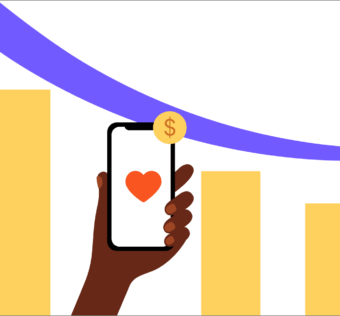5 Common Misconceptions About Church Giving Apps
If you work in a place of worship, you have probably heard quite a few myths about church giving apps. But once you learn the truth about this technology, you will see how your organization and parishioners can benefit from its use.
They’re Hard To Use
One of the most common misconceptions about church giving apps is that they are challenging. While some people may have trouble learning to use any new technology, giving apps make giving easier. A donation can be made to your place of worship with just a few taps.
Is this objection mainly intended to save older church members from struggling with smartphones? Perhaps. But senior churchgoers have shown they can get on board with modern technology. According to a study by Dunham and Company:
Only 29% of donors over age 66 gave online in 2010
That percentage jumped to 59% by 2014
Givers over the age of 66 are now just as likely to give on a website as those 65 and under
While it may take a tiny bit of education to get them started, your members will adapt quickly to the change — and they will probably even thank you for making it.
They’re a Distraction During Service
In movie theaters, mobile phones are considered a distraction and are not allowed. Contrary to popular belief, the same is not valid for church services.
Churchgoers often use their smartphones to be more, not less, involved with the service. Whether by posting quotes from the sermon on Twitter or following along with a Bible app during a scripture reading, parishioners are often even more focused on the message when they have their phones in hand.
Church giving apps are not a distraction, either. They enable people who do not have cash or checks to give an offering, but they do not take time away from the service like kiosks or card readers do. Your members can quickly give and then return their full attention to the service.
They’re Not Secure
Safety is at the top of everyone’s mind these days. With news of hacking and data breaches coming from major companies, it is understandable that people will be wary of giving out their personal information.
But church giving apps make sure that donor privacy is a top priority. It is just as safe to use these apps as it is to use debit cards from your bank.
They’re Too Expensive
When considering adding new technology at your church, one of the key arguments is price. Why spend extra money to accept donations from your flock?
Fortunately, church giving apps are not as costly as you might think. Many apps, like Givelify, are free to download and use, and places of worship are not charged startup or monthly fees to use the service. A small 2.9% plus 30 cents per transaction is the only cost involved, and it is deducted before the donation reaches the church.
Nobody Uses Church Giving Apps
Since church giving apps and other mobile payment technology are still pretty new, a lot of people make the false assumption that no one uses them.
In reality, more and more people use church giving apps every day. According to a survey by Church Executive magazine, 36% of churches with at least 1,000 weekly attendees accept donations using mobile giving methods.
Start using church giving apps today, and see the benefits firsthand.
Recommended for you:
- Video: Givelify CEO Appreciates Pastors For their Selflessness and Inspiring Leadership
- How Your Church Can Leverage GivingTuesday to Boost Giving
- Video: How One Church Increased Donations by 25% in One Year with Givelify
- How Your Church Can Elevate Its Worship Online
- Video: “Givelify has been a blessing to our ministry”
- Show Gratitude: How to Say Thank You to Your Donors



